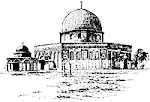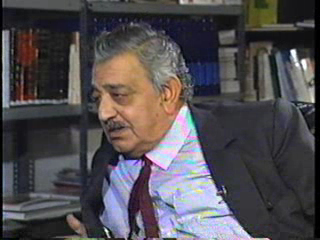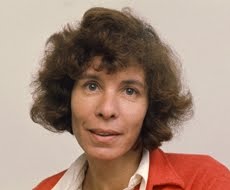Hobsbawm, a historian in the Marxist tradition and a lifelong member of the communist party, wrote more than 30 books. Among them his 'quartet' is probably the most famous. It consists of books about the French revolution (The Age of Revolution: Europe 1789-1848), the British industrial revolution (The Age of Capital: 1848-1875), the period leading to the First World War (The Age of Empire: 1875-1914) and a history of the 20th century (The Age of Extremes: the short twentieth century, 1914–1991). This last book has been translated into 40 languages.
| Hobsbawn in 1976 (WSJ) |
'Invented tradition' is taken to mean a set of practices, normally governed by overtly or tacitly accepted rules and of a ritual or symbolic nature, which seek to inculcate certain values and norms of behaviour by repetition, which automatically implies continuity with the past. In fact, where possible, they normally attempt to establish continuity with a suitable historic past.... However, insofar as there is such reference to a historic past, the peculiarity of 'invented' traditions is that the continuity with it is largely fictitious. In short, they are responses to novel situations which take the form of reference to old situations, or which establish their own past by quasi-obligatory repetition."
The concept has since been adopted by representatives of numerous disciplines from political scientists to anthropologists, as it can be applied to understand the practices of fundamentalists of different beliefs (Christian, Islamic or Jewish), or the common discourse of a young state like Israel which bases its existence on biblical texts.
Hobsbawn (an error by a cleric is responsible for the name - his father's name was Obtstbaum) was born in 1917 in Alexandria (Egypt) to a British father and an Austrian mother, both of them Jewish. When he was two the family moved to Vienna. At age 14 Hobsbawn became an orphan and he was take care of by relatives in Berlin. There he was confronted with the rise of Adolf Hitler, which, as he said, left a mark for the rest of his life as was the case with anybody who experienced it. Also during that period he discovered the Communist Manifesto and communism. He would always remain a communist, although in the 70s he became more enthusiastic about Antonio Gramsci and Eurocommunism. In an interview with the BBC in 1995 he said that he had become disillusioned with the Soviet Union after the death in 1953 of Josef Stalin and after 1956 'recycled himself as a sympathizer rather than a militant'.
Hobsbawn moved in 1933 to London. In 1947, he became a lecturer in history at Birkbeck (University of London). He became a reader in 1959, and was a professor from 1970–82. He was a fellow between 1949–55 at King's College, Cambridge, a visiting professor at Stanford in the and other American universities. He was elected a Foreign Honorary Member of the American Academy of Arts and Sciences in 1971. In 1978 he became a Fellow of the British Academy.
Hobsbawn retired in 1982 but stayed as visiting professor at The New School for Social Research in Manhattan between 1984–97. He was until his death the President of Birkbeck and Professor Emeritus in The New School for Social Research in the Political Science department. He spoke German, English, French, Spanish and Italian fluently, and read Dutch, Portuguese and Catalan.
Apart from his historical works he wrote in 1959 "The Jazz Scene," using the pseudonym Francis Newton. He continued to write about jazz under this name for the New Statesman.
Read more at: http://indiatoday.intoday.in/story/eminent-british-historian-eric-hobsbawm-dies-at-95/1/223013.html
Read more at: http://indiatoday.intoday.in/story/eminent-british-historian-eric-hobsbawm-dies-at-95/1/223013.html


.jpg)


No comments:
Post a Comment